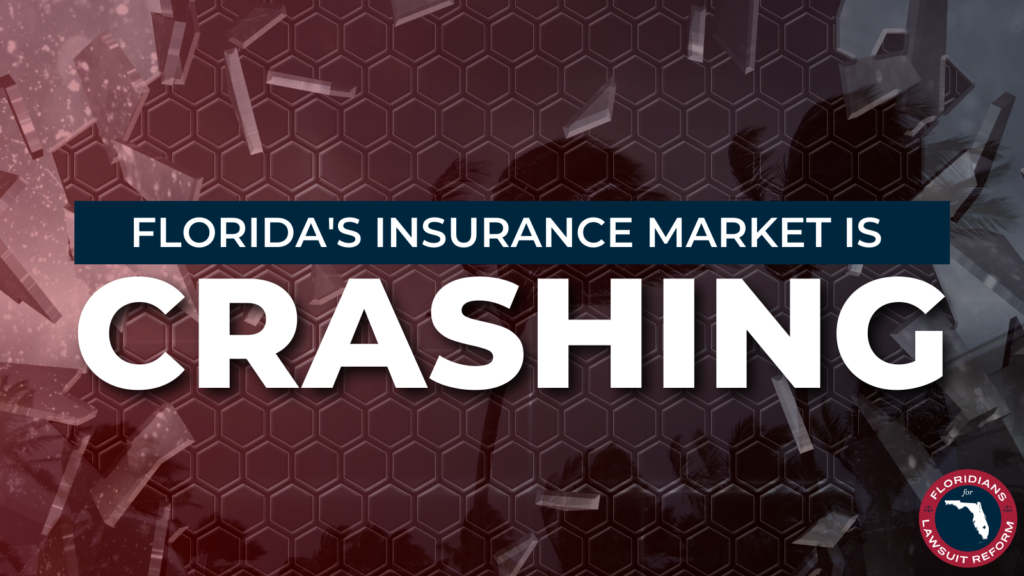
130x more lawsuits in Florida than anywhere else.
Let’s start with the obvious; Florida’s property insurance market is broken.
Despite reforms in 2019 and 2021, lawsuit counts continue to soar. Even with six months of reform last year, Florida property insurers saw 100,250 lawsuits (DFS-LSOP) in 2021, and 16,655 notices of intent to litigate (DFS-PIITIL). Considering every other state had an average litigation count of less than 900, Florida had 130 times more litigation than any other state in the Union.
There also appear to be lawyers who are ramping up lawsuits compared to this time last year. One Miami-based attorney filed 2,644 lawsuits in the second half of 2021 (after SB 76 became effective), none of which were filed via the new notice of intent to litigate process. He’s not alone either, which is why lawsuits against property insurers increased 37% in January.
The insurance industry says roof litigation is at the center of the crisis. Contractors partnering with law firms advertise that they can get homeowners new roofs paid for by insurance, even if they only have one or two shingles damaged. Sen. Jason Brodeur recently summed up the issue like this, “Owning an asset requires maintenance. If you drive 85,000 miles on your tires, and you need new tires, you don’t make an insurance claim; you just pay for new tires. These [roof claims] are not supposed to be warranties.”
Agents say this is why Citizens Property Insurance is growing wildly. Due to the litigation threat, private carriers have no capacity for roofs over 10 years old. This leaves homeowners with Citizens being their only choice. Once at 420,000 policies, the state-run insurer expects to surpass 1 million policies this year. The insurer of last resort is now the state’s largest insurer.
This manufactured crisis has led to insurers accumulating $4 billion in losses over the last three years, even with no hurricane activity. These losses must be passed on to consumers via rate increases, or the companies will go insolvent. For some carriers, the rate increases were not enough. St. Johns Insurance and Avatar Insurance were downgraded last week and are headed to receivership. More than a half dozen other carriers announced they were shutting down new business, and Progressive Insurance is non-renewing 56,000 policies with old roofs. Six more Florida carriers could soon be facing a rating downgrade rendering them insolvent as well. These insolvencies come with a price tag for taxpayers too. Last year, there was a $168 million assessment when American Capital Assurance went insolvent. The two most recent insolvencies will likely surpass that number.
It does beg the question, why isn’t this an all-hands-on-deck situation? If any other industry (let’s say utilities) saw these types of losses and corresponding rate increases, wouldn’t the Legislature have done something to fix it on the first day of Session? If the agriculture industry had a catastrophe wipe out a harvest season, wouldn’t there be a bipartisan news conference announcing a relief package? Credit is due to the Florida Senate, which continues to push for reform. It’s not every day that Senate President Wilton Simpson and Sen. Jeff Brandes are singing the same hymn. Both agree that the Legislature will have failed citizens if nothing is done this year.
To date, the OIR has been noticeably absent from committee hearings on SB 1728 this year, and the House Speaker has been skeptical on the components in Sen. Jim Boyd’s bill. Last year, a compromise on the roofing issue dealt with language curbing door-to-door solicitors. However, as one industry expert put it, “instead of closing the loophole allowing for free roofs, the House said let’s try to ban contractors from telling people about the loophole.” The roof solicitation language was eventually deemed unconstitutional by a federal judge two weeks after SB 76 went into effect.
